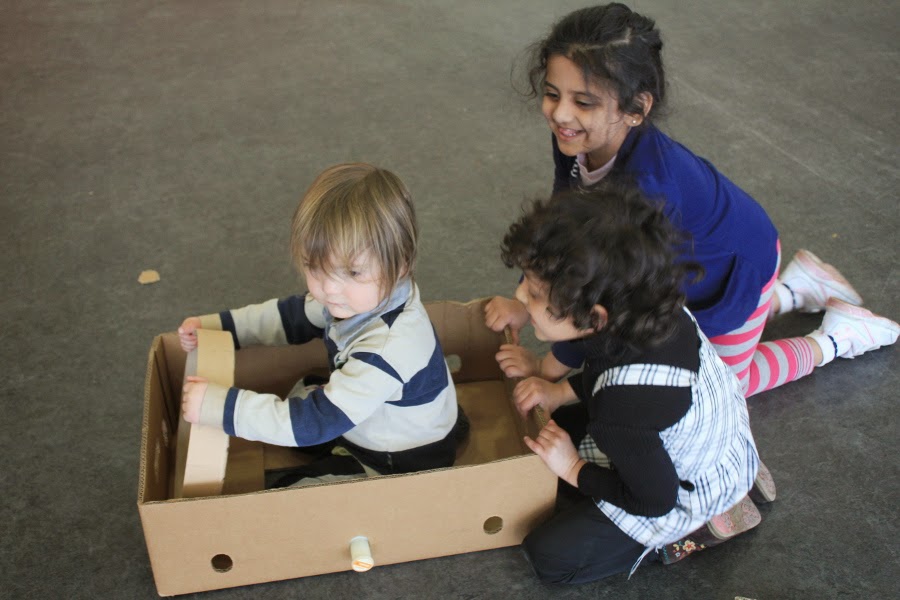Anyone who’s spent much time playing with children has had practice believing two seemingly-contradictory things simultaneously. This is a stick but also a sword for killing zombies. This is a striped grey rock but it’s also a prized treasure. There are a few more that we’re getting very accustomed to here at Pop-Up Adventure Play and they’re all to do with playwork.
We’ve spent years now disseminating the ideas of playwork for broad application – delivering resource packs that cover an ‘introductory’ level of this approach for one-off pop-up adventure playgrounds, and delivering workshops to help professionals weave play support into their homes, their classrooms, their gymnasiums.
Playwork approaches can be applied by anyone, we say. You can start with basic materials, even with the forgotten contents of your own closets. Moreover, you can start in just five minutes. You can start by returning a smile. This is true. We are proud to work towards a world where all adults understand the absolute basics of playwork, where children are seen to be people and their right to play recognized. But it’s also true that it takes much more than this to ‘be’ a playworker.
Ours is a field with decades of experience, rich with theory and the stories shared by colleagues. We’ve years of practice to draw upon, including lessons learned from the powerful relationships with children that can only come with time. Playwork is a profession and for us professionalism is also intensely personal. It requires us to reflect deeply on our own biases, our needs and fears and all that would be more comfortable to ignore.
Five Elements of Playwork
Playwork can be intuitive, we say, and that’s true. Sometimes a wordless sense of mood is our best guide. It requires training, practice and reflection. That is also true. Sometimes our assumptions blind us to the experiences of others, and those assumptions take effort to unpack.
Play is an instinct, predating our ability to use language but the vocabulary it gives us, including terms such as cue and frame and cycle, are tools to study and communicate with one another. Play and playwork are filled with paradoxes.
We promote the model of pop-up adventure playgrounds because they are easy. They introduce themes of risk and freedom in ways that are highly accessible. We’ve found that having a quantity of loose parts and a family environment means that these events will often seem to run themselves – lots of stuff means lots of possibility. Using recycled materials and junk allows people doing playwork for the first time to say ‘yes’ and really mean it. Gathering materials and publicising events take time and effort, so we encourage organisers to make things as easy on themselves as possible. Bring only as much as you can fit in your car, we say. Enlist your friends to help with clean up. Take time to enjoy it all. Tell us all about it, afterwards.

Reactions to the Paradoxes of Play
They tell us that it was “an amazing experience” and that “this is wonderful”. They say that they now want to do more – more events, more programming. Maybe grow a fixed adventure playground, one day? The bug for further study, deeper practice has caught us too – both Suzanna and myself are working towards our playwork PhDs.
Play can last a moment, and that moment can last forever. An event can be a one-off, and the start of something huge. That’s where further training comes in. Over time, as those relationships with children and adults develop you start to need that additional context and information, conversations with colleagues, support for your own reflection.
We say that no playworker should be in isolation, and that’s why every student on our Playworker Development Course is given their own tutor who provides individual feedback and guidance throughout. That’s also why we encourage students to share their stories in our private online forum, to talk one another through the process of becoming a playworker. It’s a profound shift, because while playwork is a profession it is also a vocation, a way of being in the world that can permeate your whole life.
Find out more about our Playworker Development Course. If you want to learn more about Pop-Up Adventure Play please get in touch.
By Morgan